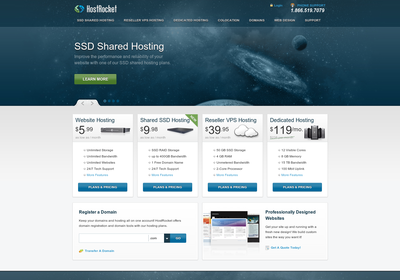Zikula Hosting: Compare Hosting
Oops! No Hosting Plans Match Your Search
You’ve selected a combination of features that none of the web hosts we profile offer. We suggest you remove your last filter or reset & start again.
Ask Our Experts
Need help with your hosting? Tell us exactly what you are looking for and we’ll do our very best to help. Please allow one working day for a response.
Please fill in all fields.
Thanks! Your request has been sent. We’ll reply within 24 hours.
Recommended Host for Zikula

 Prices in are approximate, based on current exchange rates. The host may charge you in USD.
Prices in are approximate, based on current exchange rates. The host may charge you in USD.
 Prices in are approximate, based on current exchange rates. The host may charge you in USD.
Prices in are approximate, based on current exchange rates. The host may charge you in USD.
 Prices in are approximate, based on current exchange rates. The host may charge you in USD.
Prices in are approximate, based on current exchange rates. The host may charge you in USD.
 Prices in are approximate, based on current exchange rates. The host may charge you in USD.
Prices in are approximate, based on current exchange rates. The host may charge you in USD.
 Prices in are approximate, based on current exchange rates. The host may charge you in USD.
Prices in are approximate, based on current exchange rates. The host may charge you in USD.
 Prices in are approximate, based on current exchange rates. The host may charge you in USD.
Prices in are approximate, based on current exchange rates. The host may charge you in USD.
 Prices in are approximate, based on current exchange rates. The host may charge you in USD.
Prices in are approximate, based on current exchange rates. The host may charge you in USD.What is Zikula Hosting?
Zikula is an open source website builder that’s quick and easy to use. With a variety of themes, plugins, and user-friendly tools, it’s a simple and highly flexible way to get your business webpage, online store, or blog up and running.
Zikula is an application development framework and content management system for building dynamic web sites and apps in PHP.
What is a web application development framework?
Building a software application from scratch involves a lot of repetitive “boiler plate” coding. There are so many things that need to be done every single time you build a web application:
- Basic utility code, like class loaders, templating, and database interaction.
- Architectural decisions, like how to organize code and how components interact with each other.
- Universally needed features like user management, login, and form validation.
- Common, domain specific features like shopping carts, blog post creation, and commenting.
- Development-related support tasks, like testing, integration, and deployment.
An application development framework provides tools for accomplishing some or all of those tasks, either automatically or with greater ease than usual.
What is a Content Management System?
A content management system is a web application that provides administrators with a relatively easy way to add, edit, and update content, and automates the display and navigation of that content for front-end users. There is usually a templating or theming system in place that makes it easy for developers to customize the way content is displayed and navigated.
What’s the difference?
Especially in the area of web development, there are a number of software packages that combine the features of a Content Management System and an application development framework.
The distinction mostly has to do with what tasks are easy and which are difficult, along with how data is structured.
CMSes usually make it very easy to start publishing content right away, but the mechanisms for extending functionality are often hidden away, or not accessible at all. Frameworks, on the other hand, provide a lot of tools for implementing features, but tend to lack the features themselves.
A content management system usually has a specific data structure inherent to it, including details like Posts, Pages, Authors, tagging, categories, and so forth. Application development frameworks usually have an open-ended data-structure, along with built-in tools (like an ActiveRecord class) for modeling unique custom data structures.
Zikula: Framework and CMS
Zikula is a powerful PHP-based application development framework that has content management capabilities built-in. The idea is to expose all the functionality of a typical Application Development Framework, with the up-and-running ease of a traditional CMS.
This is accomplished by building Zikula on top of other development frameworks and implementing a modular approach to feature development.
Notable features of Zikula
Built on top of Symfony and Doctrine
Zikula is a framework riding on top of another framework called Symfony, which includes a set of powerful PHP tools called Doctrine. From a development standpoint, this gives programmers working in Zikula access to a mature, well-documented set of libraries and utilities.
Integrated with Bootstrap and Font Awesome
Twitter Bootstrap is a front-end UI framework for developing modern-looking, mobile-friendly, responsive websites and web applications. It features a responsive grid layout system, an extensive and highly-usable set of CSS styles and markup declarations, and a host of JavaScript interaction enhancements.
Bootstrap has become the most popular front-end framework, and for good reason.
Zikula has built-in support for Bootstrap and its icon system Font Awesome, which makes it very easy to build a contemporary user experience.
Integrated with jQuery
Zikula’s server-side capabilities are built on top of powerful PHP frameworks Symfony and Doctrine. Similarly, its front-end experience is built on jQuery, which provides a wide range of HTML manipulation and DOM-handling capabilities. Zikula’s own built-in features use the library, and so can developers working on a Zikula application.
Module Studio
Zikula is extended through the development of modules. Modules can be created in the Zikula sister project called Module Studio.
Module Studio is a GUI-based Development Environment that provides a Model-Driven-Design approach to rapid development. Rather than hand-coding data structures and component interactions, Module Studio allows a developer to represent these things visually, using a form of UML. Module code is then automatically generated from these models.
Who Should Use Zikula?
Zikula is an interesting project with a lot of potential. It offers powerful tools for web development. The Module Studio project, combined with the front-end capabilities of Bootstrap, could seriously accelerate the pace of iterative development of new and interesting applications.
But it is still fairly new, and it doesn’t “just work” right out of the box. Documentation is a little thin.
This means it likely isn’t right for non-technical people who are just looking for a good Content Management System. Nor is it probably a good choice for mission-critical business support.
Right now, the best use of Zikula is probably rapid prototyping of novel web applications. It is also a good project for people looking to contribute to an interesting Open Source application. It is new enough that there is still room for beginners looking to make a meaningful impact.
Requirements
The only hard requirement for Zikula is PHP 5.3+ (with 5.5 strongly recommended). Most applications built with Zikula will also probably need a database, but this choice is completely open.
Zikula Hosting Frequently Asked Questions
-
What is the best way to describe what Zikula provides users?
This is an open source website builder that is not only efficient, but is also easy to learn and just as simple to implement. There are a variety of themes and plugins to choose from, as well as numerous user-friendly tools. With extreme flexibility, Zikula can be used to build a personal website, business website, blog, or online store.
-
Can you use Zikula for advanced web application development purposes?
There is a lot that goes into building a web application, and Zikula helps people without much knowledge get started. As one of the most well known application development frameworks, you can accomplish all the tasks associated with building a web application. This includes but is not limited to testing, basic utility code, and domain specific features.
-
How does Zikula stack up to the competition in terms of its content management system abilities?
It may not be as popular as other options, such as WordPress and Joomla, but it compares nicely in terms of features and ease of use. You can use Zikula to add, update, and edit content as well as a variety of other media types, such as images and video. With themes, it is easy for developers to make changes to the overall appearance of any site.
-
Is Zikula built for a particular group of users?
Anybody with access to Zikula will likely find a way to use it to their advantage. A variety of robust tools, along with all the necessary security measures, allow any and all users to speed up the process of developing a new website or application. It is not always the best choice for people who want nothing more than a basic content management system, as it provides a much more detailed and in-depth experience.
-
What are the hosting requirements for running Zikula?
If you are interested in using Zikula to build a website or application you should check with your hosting company to ensure that it meets the necessary requirements, which includes PHP 5.3+ or higher. While not always the case, most applications built with the Zikula platform typically require a database.
-
Do some hosting companies offer better support for Zikula than others?
The simple answer is yes. The more detailed answer is that you can probably use any host you want to build a web application with this platform. Some of the recommended Zikula hosting companies include DreamHost, Siteground, Host Metro, Daily Razor, and Micfo. As a general rule of thumb, it makes sense to consult with your hosting company before installing Zikula.
-
What are some of the many features that have made Zikula so popular?
The features that mean the most to one person may not be as important to another. However, here is a list of the top features: templating engine, API, variety of themes, WYSIWYG editor, forums, RSS feed, flexible document center, galleries, e-commerce capabilities, chat, variety of supported languages, built-in caching, support for short URLs, and ModuleStudio development.
-
How has Zikula developed over the years?
While some content management systems remain the same, year in and year out, Zikula has an active development schedule that ensures up to date features and releases based on the unique needs of its users.
-
Is there any place for third party developers in regards to the Zikula platform?
While not as robust as some competitors, such as WordPress, there are developers that build extensions for the Zikula platform. These extensions help perform a variety of tasks, including but not limited to blogging, displaying images, adding forums, playing music, and shopping carts.
-
Is it simple to change themes in Zikula?
Many people use a content management system because they like the ability to change themes whenever necessary. With Zikula, this is as simple as following a few basic steps. The first step is downloading the theme. From there, it can be unpacked and then uploaded through the file manager. Everything you need in relation to themes is located in the administration panel.
-
What is the history of Zikula?
Before taking on the Zikula name in 2008, the platform was known as PostNuke. While the name may have changed, nothing altered the fact that it can be used to build almost any type of website.
-
What is the process of installing Zikula?
Some hosting companies provide Zikula “out of the box,” meaning you don’t have to do anything after signing up for an account. With others, you need to install Zikula before you can get started. As an open source web based content management system, it will not cost you any money to get started. The only thing you need to do is verify with your host that your server can handle Zikula. From there, visit the official website for a download link.












